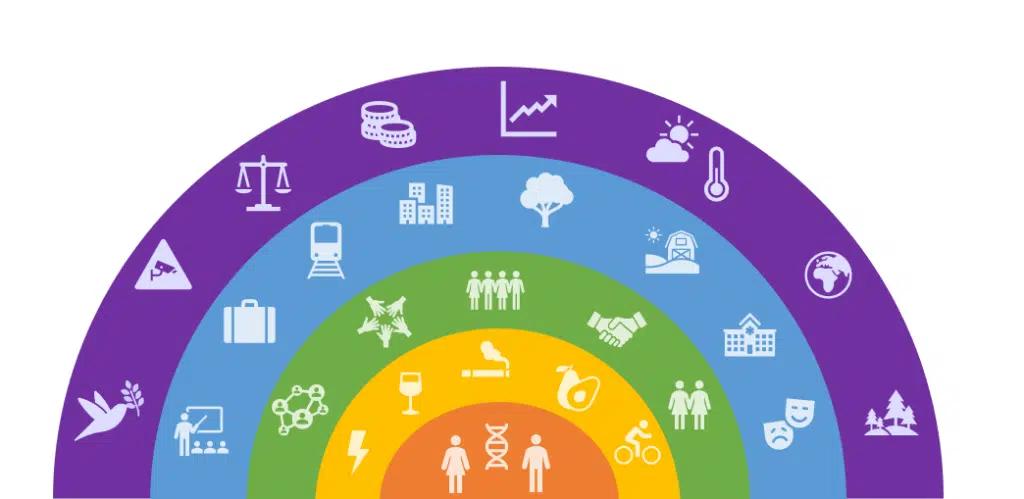When we are ill, we wish you a speedy recovery; for your birthday and the New Year, we wish you good health. But what exactly does the term “health” actually mean? At what point are we considered healthy or sick, and what influences our health? Find out in this article.
Health - a possible definition
Defining health is not so easy, it is a very complex and multifaceted. There are various definitions, one commonly known being that of the World Health Organization (WHO): “Health is the state of complete physical, mental and social well-being and not merely the absence of disease or infirmity. The attainment of the highest attainable standard of health is one of the fundamental rights of every human being, without distinction of ethnicity, religion, political belief, economic or social status.”
Thus, WHO has set forth a very comprehensive and much-used definition, but there are criticisms. For example, “complete […] well-being” in all domains is rather an ideal that is difficult to achieve. Moreover, it is debatable whether health is really a state. More on this in the following section.
Health - a state or a process?
Everyone knows how unpleasant a strong flu feels. Sometimes, however, you just notice that something might be coming on – you feel a little floppy, put on the brakes a bit and, in the best case, escape the actual outbreak of the disease. Equally common is a feeling of exhaustion when life is particularly challenging or the stress at work just won’t let up. Are you considered sick or healthy in these situations?
Health is less a static condition than a dynamic process. A clear assignment to the category “healthy” or “sick” is never possible, considering, for example, that a seemingly healthy body can also develop a latent disease, which only breaks out years later. Moreover, one can feel fit and healthy even with a sprained toe. So we move on a continuum between the poles of disease and health, although these poles can never be fully reached.
Health - influencing factors and dimensions
As the WHO has already described in the above definition, health goes beyond the mere functioning of the body and is subject to various influencing factors. Among them are individual characteristics and conditions, but also the physical and social environment play a major role. There are various determinants that affect our state of health. Here you can see in a graphic which factors influence our health.

Individual factors
Age, sex, heredity
Individual lifestyle factors
Diet, exercise, cigarette consumption, alcohol consumption, stress, self-care, etc.
Social and community environment
Social contacts and support, close ties, social cohesion, couple relationship, friends, family, etc.
Living and working conditions
Working environment and conditions, commuting to work, place of residence, arts, cultural activities, leisure activities, social insurance, medical care, etc.
General conditions of the socio-economic, physical and cultural environment
Geographical location, economy, nature, laws, politics, peace, infrastructure, values, norms, culture, security, etc.
Health is therefore not only produced individually, but depends on many different determinants. If you want to do something for your health yourself, you can do this above all at the level of your individual lifestyle. A healthy lifestyle includes abstaining from cigarettes, alcohol and other noxious substances, a healthy and balanced diet, sufficient and regular exercise, and not spending too much time on stress and social contacts.




